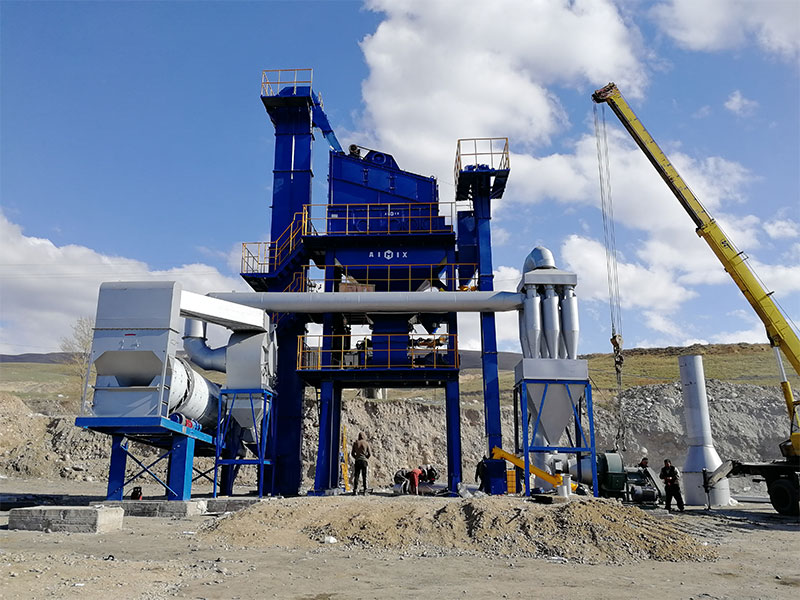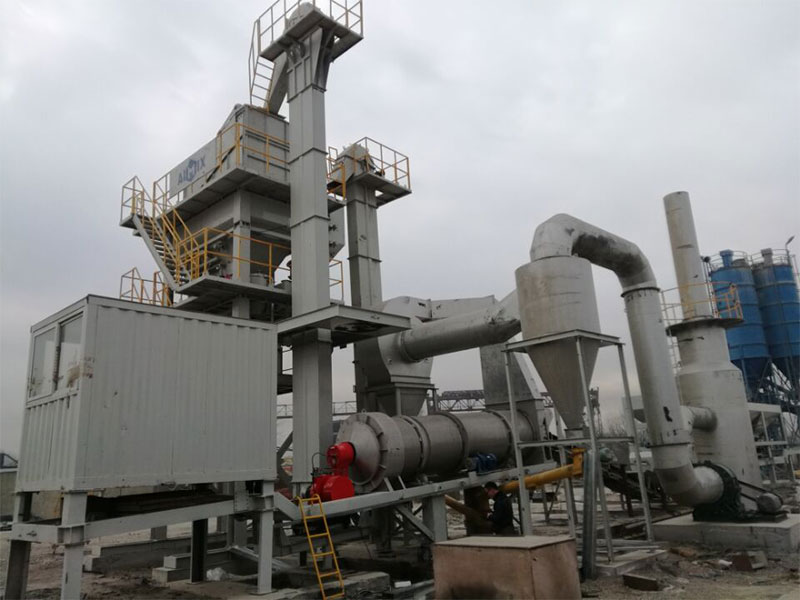The selection of the appropriate asphalt mixing plant model is a critical decision that significantly impacts the efficiency, quality, and cost-effectiveness of your asphalt production operations. With a plethora of options available in the market, it’s crucial to make an informed decision that aligns with your project requirements.
Project Requirements Analysis
Before delving into the specifics of jenis asphalt mixing plant, it’s imperative to thoroughly analyze your project’s requirements. Consider factors such as project scale, expected production volume, types of asphalt mixes (hot mix, warm mix, cold mix), and the specific mix designs you’ll be working with. Additionally, take into account the local environmental regulations and any specific requirements or constraints imposed by the project site.

Production Capacity
One of the foremost considerations when choosing an asphalt mixing plant model is its production capacity. The capacity should align with your project’s output requirements to ensure a seamless workflow. If you select a plant with insufficient capacity, it may lead to delays and inefficiencies. On the other hand, choosing a plant with excessive capacity can result in unnecessary operational costs.
Mobility and Installation
Depending on the nature of your projects, you may need a stationary or mesin mobile asphalt mixing plant. Mobile plants offer flexibility and are suitable for projects that require frequent relocation. However, stationary plants are more efficient for large-scale and continuous production. Consider the ease of installation, setup time, and transportation logistics when deciding between a mobile and stationary plant.
Fuel Efficiency and Environmental Impact
As sustainability becomes a top priority in construction projects, evaluating the fuel efficiency and environmental impact of the asphalt mixing plant is crucial. Opt for a model that incorporates modern technologies, such as burner systems with high combustion efficiency and reduced emissions. This not only helps minimize the environmental footprint but also contributes to long-term cost savings.

Maintenance and Service
Regular maintenance is essential to ensure the optimal performance and longevity of your asphalt mixing plant. Choose a model that offers easy access to components for maintenance and repairs. Additionally, consider the availability of spare parts and the manufacturer’s track record in providing timely and efficient customer support.
Mixing Technology and Quality
The quality of the asphalt mix directly influences the durability and performance of the finished pavement. Evaluate the mixing technology employed by different plant models. Advanced mixing technologies, such as counterflow or parallel flow systems, can significantly improve the uniformity and consistency of the mix. Quality should never be compromised for cost savings, as inferior mixes can lead to premature pavement deterioration.
Automation and Control Systems
Automation plays a vital role in enhancing the efficiency and accuracy of asphalt production. Modern jual beli asphalt mixing plants come equipped with sophisticated control systems that offer real-time monitoring, data logging, and remote access capabilities. These features not only streamline operations but also contribute to better quality control.
Cost Considerations
While cost should not be the sole determining factor, it is undoubtedly an important consideration. Evaluate the initial investment cost, operational expenses (including fuel consumption and maintenance), and potential long-term savings. A cost-benefit analysis will help you make an informed decision that aligns with your budget and project goals.
Reputation and Reviews
Research the reputation of the manufacturer or supplier of the amp aspal mixing plant mini. Look for reviews and testimonials from other clients who have used their products. A reliable and reputable manufacturer is more likely to provide high-quality equipment and excellent customer service.
Conclusion
Choosing the right model of an asphalt mixing plant requires a thorough assessment of your project’s requirements and a careful evaluation of various factors such as production capacity, mobility, environmental impact, maintenance, mixing technology, automation, and cost considerations. By taking a holistic approach and making an informed decision, you can ensure that your asphalt production operations are efficient, cost-effective, and aligned with the highest quality standards.
